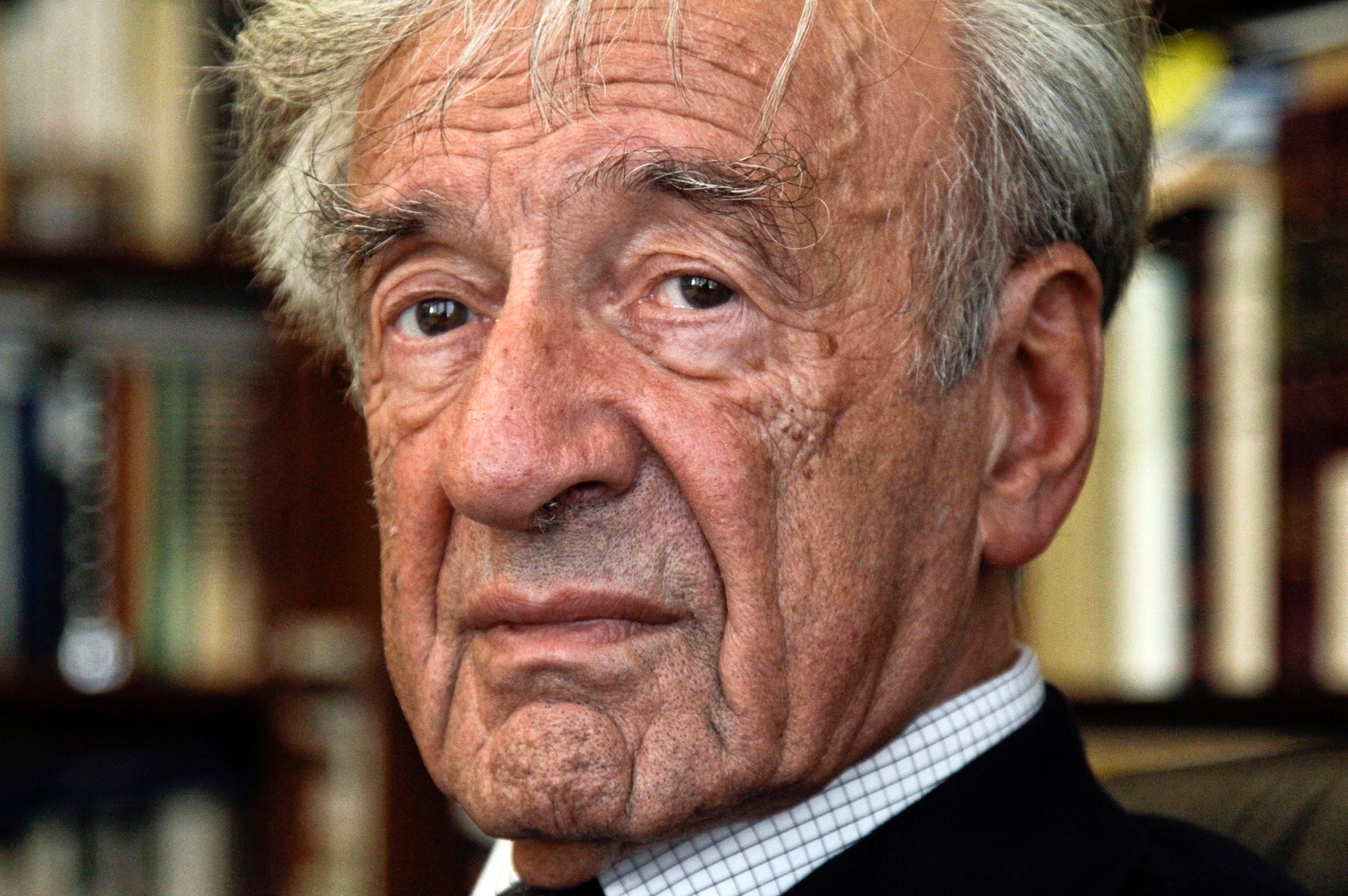
Nobel Peace Prize winner Elie Wiesel, 77, is a teacher, writer–and survivor. His memoir Night, chronicling his time in Nazi concentration camps, was named last week as the latest selection of Oprah’s Book Club. The Boston University humanities professor spoke with TIME’s Jeff Chu about reaching new audiences, the trendiness of Kabbalah and why he admires Moses.
OPRAH’S BOOK CLUB GIVES YOU VERY DIFFERENT READERS FROM THOSE YOU HAD WHEN NIGHT FIRST CAME OUT. This book came out 45 years ago in America. At the beginning, there were very few readers! Priests and rabbis, when they spoke about the book, were reprimanded by parents who said, Why turn our children into morbid persons? Curiosity has increased, especially among young people. And now, thanks to the extraordinary voice of Oprah, people will read it who had never heard of me before.
THIS IS A NEW TRANSLATION OF NIGHT. CRITICS HAVE QUESTIONED CHANGES FROM THE OLD ONE, LIKE YOUR AGE WHEN YOU ARRIVED AT AUSCHWITZ, WHICH WAS “NOT QUITE 15” AND IS NOW JUST “15.” I think [the criticism] is incredible. I started laughing. I’m not surprised about anything anymore. Look, in this version, I say I was 15. That’s not really true either. I was born on Sept. 30, 1928. I arrived in Auschwitz in May 1944. So I was 15 1/2.
THE VERACITY OF MEMOIR IS A HOT TOPIC, ESPECIALLY AFTER THE DOUBTS ABOUT JAMES FREY’S A MILLION LITTLE PIECES (OPRAH’S PREVIOUS SELECTION). I don’t want to speak of that controversy. I will say, with memoir, you must be honest. You must be truthful.
IN NIGHT, YOU WRITE ABOUT YOUR INTEREST IN JEWISH MYSTICISM AND KABBALAH, WHICH HAVE FOUND A NEW PLACE IN POP CULTURE. I’ll tell you what: I believe mysticism is a very serious endeavor. One must be equipped for it. One doesn’t study calculus before studying arithmetic. In my tradition, one must wait until one has learned a lot of Bible and Talmud and the Prophets to handle mysticism. This isn’t instant coffee. There is no instant mysticism.
YOU WERE A BOOKISH BOY. TODAY, YOU MIGHT BE CALLED A GEEK. [Laughs] I’ve heard that word, but I never knew what it meant. In my childhood, there were others that were as assiduous as I was and some more learned than I. I was not unusual, not in my time.
DO YOU HAVE A FAVORITE BIBLE HERO? Moses was the greatest legislator and the commander in chief of perhaps the first liberation army. He was a prophet, God’s representative to the people and the people’s representative to God. And he never had a good day in his life. Either the people were against him, or God was against him.
SO WHAT COULD MODERN LEADERS LEARN FROM MOSES’ EXAMPLE? Humility. Everyone needs it, but mainly leaders. Because they have power.
HUMILITY, CONSCIENCE, THE USE OF POWER–THESE ARE THEMES YOU’VE DISCUSSED FOR YEARS. My mission has not changed, because I don’t think the world has changed. In the beginning, I thought, Maybe my witness will be received, and things will change. But they don’t. Otherwise we wouldn’t have had Rwanda and Darfur and Cambodia and Bosnia. Human nature cannot be changed in one generation.
WHERE DO WE START? WHAT DO WE NEED TO FOCUS ON? Two subjects. We should fight hatred. There should be a Biblical commandment: Thou shalt not hate. And then there is indifference. Everyone can fall into this trap. It’s so easy to enter into indifference and stay there. An indifferent person remains indifferent unless shaken up. These are the most important subjects in the world.
YOU SOUND HOPEFUL, BUT I KNOW YOU LOVE TO READ AND TEACH ALBERT CAMUS. WHY? MANY PEOPLE SEE HIM AS A DEPRESSING WRITER. To the contrary, I think he is hopeful. If you read The Plague, there is a doctor who does everything he can to save. In the midst of death, there is a human being who sacrifices his days and nights–and maybe risks his life–to save people he’d never met. Camus said, “Where there is no hope, one must invent hope.” It is only pessimistic if you stop with the first half of the sentence and just say, There is no hope. Like Camus, even when it seems hopeless, I invent reasons to hope. — Jeff Chu
More Must-Reads from TIME
- How Donald Trump Won
- The Best Inventions of 2024
- Why Sleep Is the Key to Living Longer
- Robert Zemeckis Just Wants to Move You
- How to Break 8 Toxic Communication Habits
- Nicola Coughlan Bet on Herself—And Won
- Why Vinegar Is So Good for You
- Meet TIME's Newest Class of Next Generation Leaders
Contact us at letters@time.com